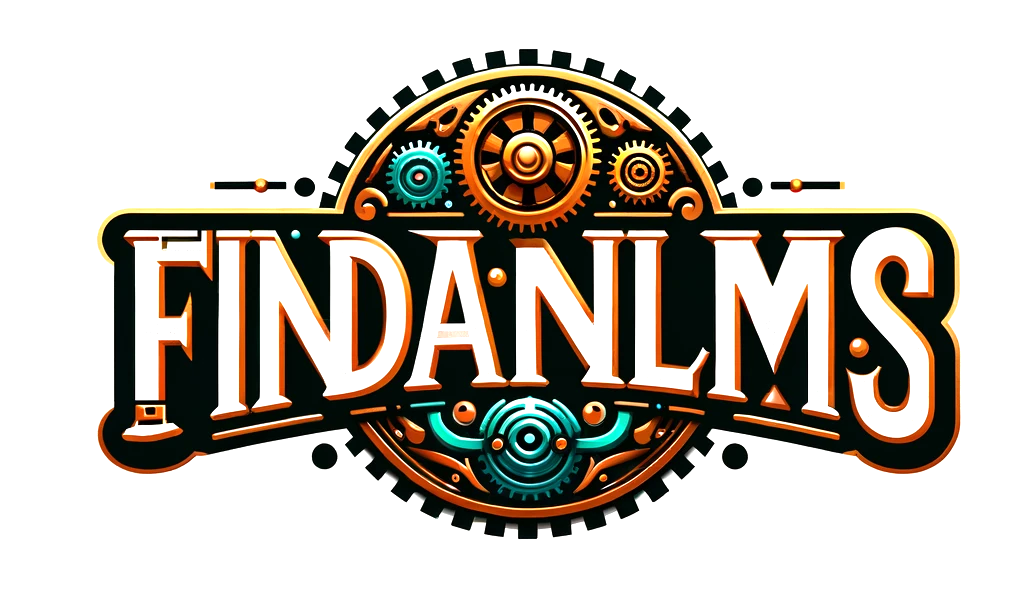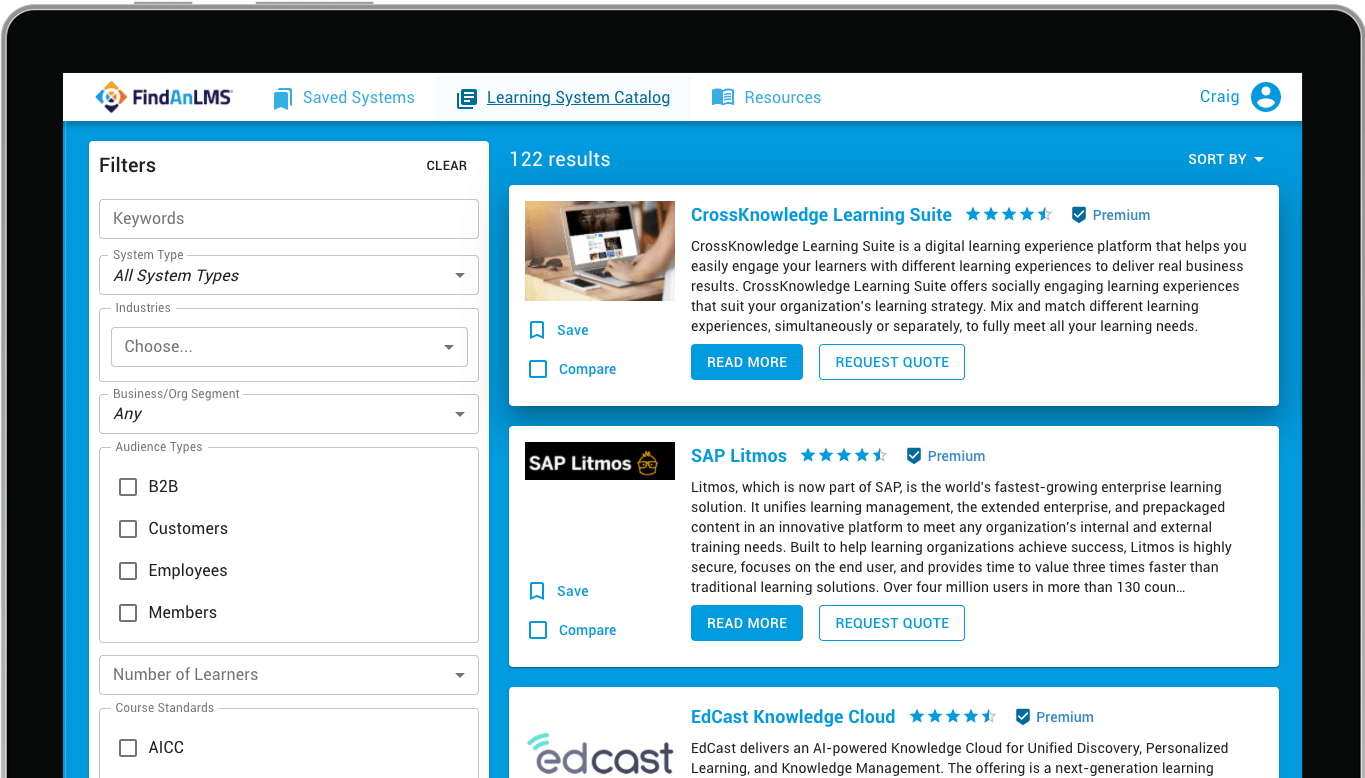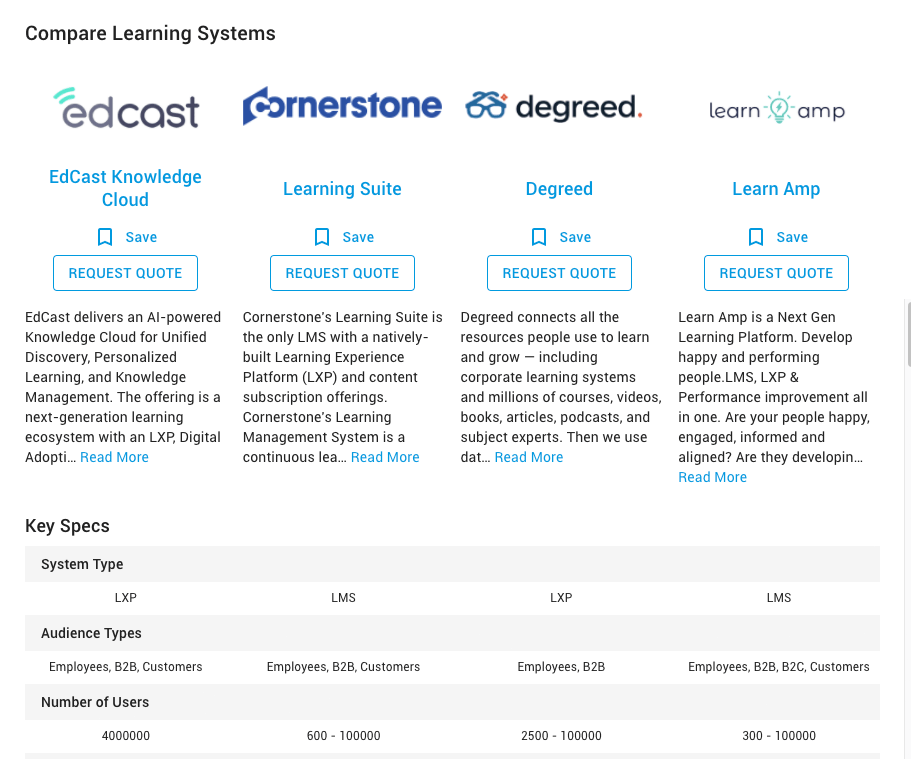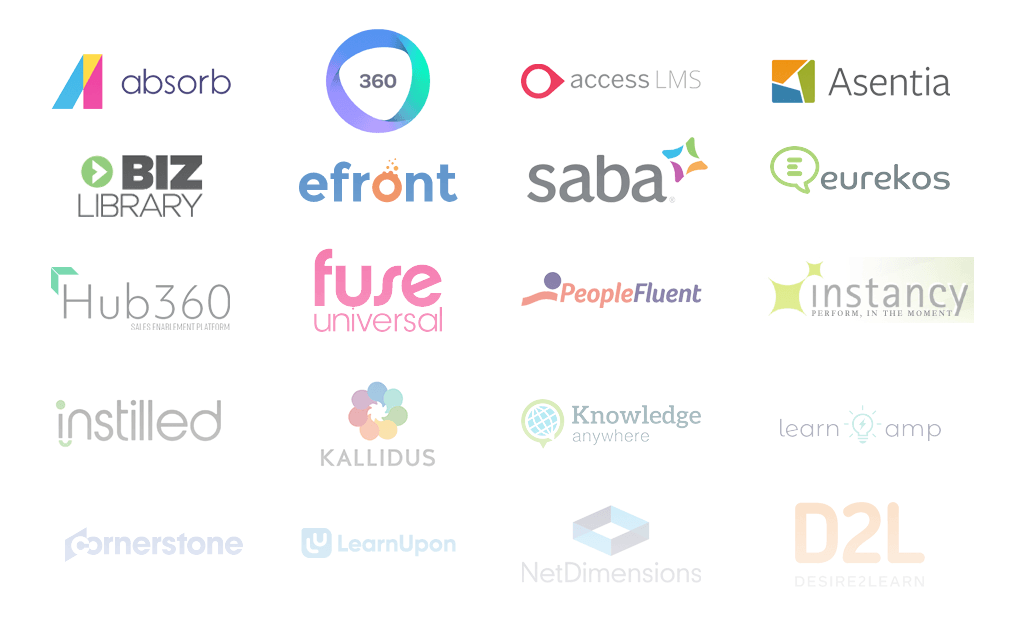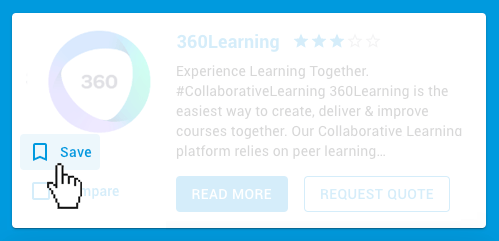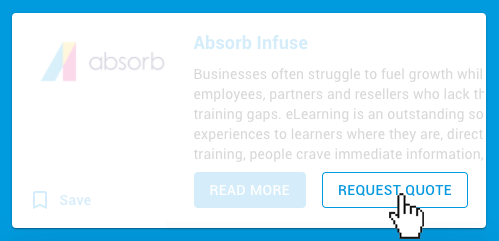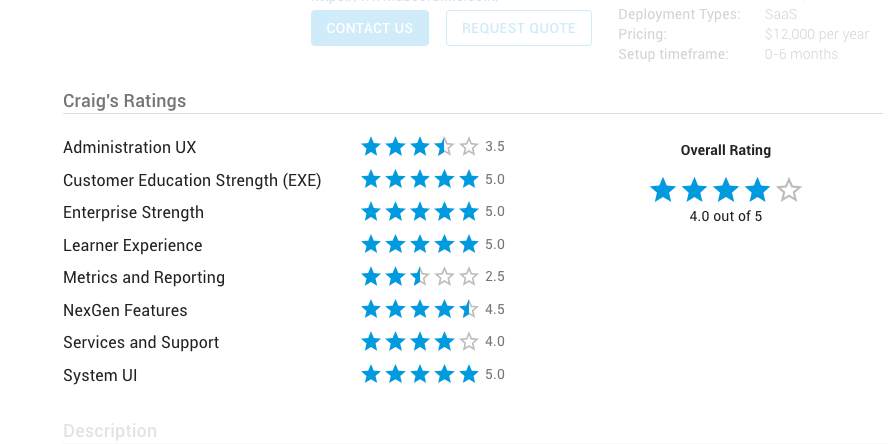Skill development is top of mind throughout the e-learning industry right now, and organizations of all sizes are looking to capitalize by choosing an LMS that supports it. Nearly every LMS vendor claims that skill development is something they excel at, but the industry as a whole is best described as “below-average” according to e-learning expert Craig Weiss. How can you tell whether a particular vendor can deliver on their skill development promises?
You cannot take a vendor’s word for it. Instead, ask what skill development means to each vendor and what feature(s) they have that others don’t that help them stand out in the space. For example, Degreed claims to offer robust skill development capabilities and delivers on that promise with a blend of traditional content (live courses, videos) and innovative access to experiential learning opportunities and mentorships, allowing for personalized reskilling and upskilling at scale.
Weiss maintains FindAnLMS.com, a site where everyday consumers can compare leading LMS vendors like Degreed head-to-head based on a variety of factors including skill development. If you’d like to learn more about what Degreed can do and how it stacks up to competitors, you can create a free account on FindAnLMS.com for exclusive insight from Weiss himself. Or, keep reading to find out about three different ways Degreed is revolutionizing skill development.
A superior skills data infrastructure
Most LMS solutions can tell you if an employee has finished a skills training course, but have they truly mastered the skill? Degreed has an advanced, better-connected skills data infrastructure to provide a complete picture of workforce capabilities. Data is collected on each individual’s skills and growth opportunities and gently nudged toward resources that could help them pursue their career goals. As a result, employees are constantly learning and improving through curated learning journeys. Each learner also has a personal skills profile following them throughout their career, making it easy to integrate and synchronize skill taxonomies, ontologies, and competencies.
If you’re looking internally to fill a skill-dependent position, Degreed gives you a database that lets you know who is capable of what. A special “skill graph” dynamically maps people, content, and experiences to topics, skills, and roles to prove the value of skill development. That makes it easier to connect qualified employees to growth opportunities. Everything from videos and online courses to projects and managers is brought together in one app as well, making skill development more accessible to learners while simultaneously making it more manageable for administrators. You haven’t seen how streamlined skill development can be until you’ve witnessed Degreed.
Diverse learning experiences
Online courses are standard in the e-learning industry, with learners asked to watch a few videos, answer a few questions, and check training off of their to-do lists. This approach frequently creates a disconnect between training and the practical application of skills that employers may not be aware of until it’s too late. Degreed understands the value of traditional training tools and their platform deploys them with ease. Native integrations with trustworthy content providers such as AWS, LinkedIn Learning, Workday, and TED@Work ensure your organization’s people have access to the top courses on the market.
However, Degreed also gives learners multiple opportunities to apply what they’re learning in a real-world context to eliminate the gap between training and performance. Connections to peers and mentors allow learners to solicit feedback on completed projects, share best practices with others, and reach out for help whenever they need it. Furthermore, experiential learning opportunities such as stretch assignments and temporary redeployments allow workers to supplement traditional learning with practical experience. Degreed even supports longer, more transformative formats like programs and academies for skills that cannot be taught in a classroom. Every organization has unique skill development needs, and Degreed is designed to handle them all.
Flexible, collaborative tools
Many organizations use their e-learning software for one specific purpose. For example, fresh hires might log in for onboarding training or established employees may use it for continuing education. Such programs are inherently flawed because employees should constantly try to improve themselves. With Degreed, users can build and deliver learning experiences spanning the entire employee experience from onboarding to reskilling. If you like, your HR and L&D departments can build top-down training experiences. Alternatively, you can empower people and teams to take ownership of their learning to increase engagement and efficiency.
If your organization has experienced employees, crowdsourced peer learning could prove more effective than any class you could develop. Likewise, Degreed has the infrastructure required for deeper, transformative learning experiences such as cohort-based boot camps, development programs, and capability academies. Throw in coaching and on-the-job experiences to help learners gain practical experience, and you have something truly special that other LMS vendors simply aren’t providing to their customers. That’s how Degreed sets itself apart in a crowded marketplace.
Learn more about Degreed on FindAnLMS.com
Dedicated skills training allows employers to ensure that employees have the skills they need to perform their job roles, but it’s much more than that. Workers appreciate an organization willing to invest in their professional and personal development, leading to increased productivity and reduced turnover rates. That also saves money on hiring and onboarding costs. Skills training gives businesses access to skills they couldn’t afford on the open market as well, making it easier to keep up with larger competitors.
Degreed is ahead of the game when it comes to skill development because the platform seamlessly connects skills to job roles while encouraging social learning and peer-to-peer interaction. If skills are a priority for your organization, Degreed is a platform that’s more than worth your time. If you have other needs as well, you should know that e-learning expert Craig Weiss ranked Degreed fourth on his annual list of the top learning systems. Highlights included one of the strongest third-party content marketplaces in the industry, the advanced reporting capabilities of Degreed Intelligence (an optional add-on), and ambitious plans for cohort-based learning in 2023.
However, those strong capabilities don’t automatically mean that Degreed is right for every organization. If you would like to compare Degreed to other top LMS solutions head-to-head with grades and insights from Weiss himself, create a free account on FindAnLMS.com today! It’s the best way to research online learning platforms like an expert without taking the time to become one yourself.
